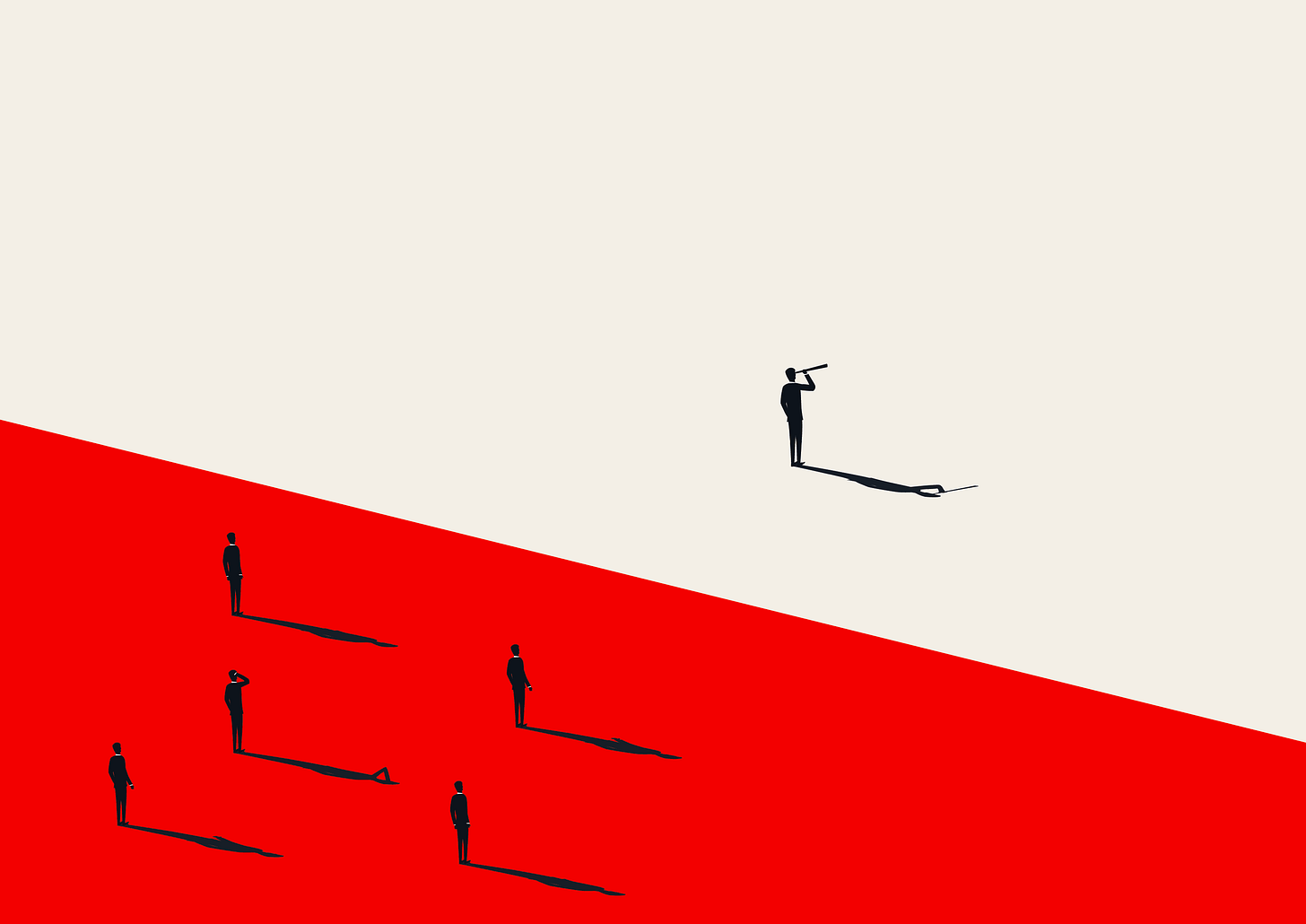You are more than the companies you have worked for
A comment from Nils Leonard that stuck with me, and why it's a good mantra for every creative professional.
Reading time: 5 minutes
Over two years ago, while bootstrapping our tech startup Aide Health, and when it was little more than a sleepless idea that might not survive 12 months, I met Nils Leonard. Our paths hadn’t crossed previously. He’s impressive, his team is impressive, and there was a brief moment when we might have worked together.
Aide being one example, I have always worked on projects outside my day job. The original app for Jamie Oliver was designed between 7pm and 1am. Spark for the Fire was written on weekends over two years. Guest lecturing at universities and supporting D&AD Shift are all on personal time also.
With that, prior to Aide, came my hesitation for any new role or project. I will never not do the other things. There are some employers that won’t care about the other things, some will encourage them, and some will see them as distractions and a signal for being less invested in what you will be paid to do. When I asked if this would be a problem for Nils and his team, he responded: “No, the reason we are here is that you are more than the companies you have worked for.”
That sentence is as perfect a reminder as can be given to all creative professionals.
Identity theft
There is a difference between wanting to make an outsized impact on the company you work for and giving all of yourself to it. The former is good, desirable. The latter, the one that is more common in professional discourse, is a quiet form of identity theft.
No one talks about this.
Creatives who allow themselves to be subsumed by their employer become the ideas, the voice, and the vision of the company. Top to tail. Assimilated like The Borg in Star Trek. You will have seen this happen to people you know.
For those people, it will come at the cost of dampening their own ideas, voice and vision.
To be clear, I think this happens more accidentally than by design of the employer. However, creative people who retain and strengthen their identity do so through private enterprise outside the day job (in whatever form that needs to be for them).
These people almost always have more to offer. I have hired these people; they are self-starters, there is more excitement around them, and in no way does their extracurricular activity detract from an ability to be effective in their role. Quite the opposite, they have more energy and are more fulfilled more of the time. Not to mention carry different perspectives. All of this rubs off on colleagues and clients.
Great employers, those who can truly survive the scrutiny of nurturing talent, know this, and welcome these people into their team. They hunt for them. Not by philanthropic act but because the value is demonstrable.
When I think about the people in the creative industry I admire, the image I have is of them, not of where they have worked. I admire companies and their impact in their own right too, but it’s categorised differently. Using Nils as an example, I don’t think of Grey (where he worked for 8 years), and I don’t exclusively think of Uncommon (the creative studio he co-founded) either. There is… ‘more’.
Why this matters
There are two great tragedies of creative lives: unfulfilled potential and not doing something you love. Too many young creatives, through no fault other than having optimism, believe their employers will provide the opportunity to accomplish all of their creative hopes and desires.
The good employers will provide some of those opportunities.
‘More’ comes from the pursuit of hopes and desires without waiting to be graced with them by your employer, which may never happen. The outcome of those pursuits is someone with uniqueness, unexpectedness, and limitlessness (or its possibility). It brings accelerated learning, entrepreneurialism, and an entirely different quality of experience that is immediately evident.
There are great things that come from being in a company that inspires you. Besides the learning and skills, there is network, reputation, access to resources and collective knowledge. But companies change as those at the helm change or when shareholders demand it. Even the ones with strong DNA. Companies also come to an end, sometimes abruptly, sometimes slowly and gracelessly. They restructure and make redundancies in response to market conditions over which they have no control. Interests also change, and any alignment between your ideas, voice and vision can become quickly unaligned.
People who stitch themselves into the shirt not only put themselves at risk of the two great tragedies while they wait for their opportunity, they are also at an immediate disadvantage in any circumstance of organisational change — there first needs to be a reinvention (or invention) of their identity in order to move forward.
Nils’ comment is freeing.
There is no permission to be sought and no guilt to be felt for wanting challenges not offered in the day job.
There is just ‘more’.
Offer for newsletter readers. Get 20% off the online course Sell the Idea. Use voucher code NEWSLETTER20 at selltheidea.co.






